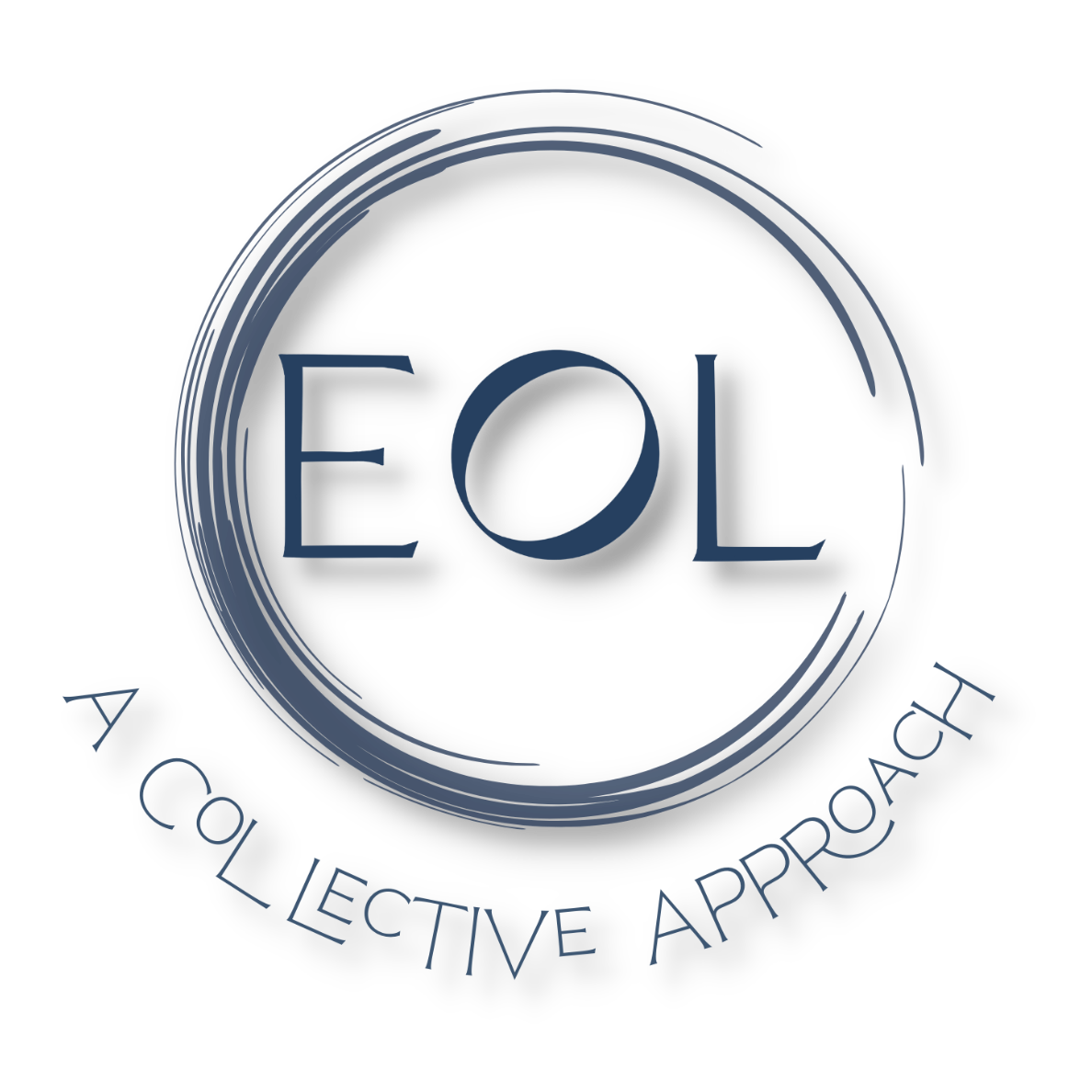Alright – so today we’ve got the honor of introducing you to Margo Lalich, MPH, RN. We think you’ll enjoy our conversation, we’ve shared it below.
Margo, looking forward to hearing all of your stories today. Let’s start with the story of your mission. What should we know?
Vision: A Collective Approach to Death and Dying
Mission: Creating community by connecting people, resources, and experiences to educate and support a holistic approach to end-of-life for individuals and families living on the North Coast.
Values: Acceptance – to be a container for the joy, suffering, and uncertainty of each person’s lived experience and relationship with death and dying.
Belonging – person-centered, inclusive, equitable. Each person has a unique lived experience and story within our shared humanity.
Connection – with a servant’s heart to listen, bear witness to, and hold the story of each individual and family as a unique and integral part of our shared humanity and sense of place.
Legacy – the invitation to create beauty and meaning from our lived experience and story.
Our Story:
Once strangers, our personal and professional lives came together through a shared passion for the profound experiences attached to death and dying. We identified how essential it is for the conversations to begin intentionally, thoughtfully, and sooner. We value the generational wisdom in our work together and believe in a collective responsibility to the community. We believe one person’s suffering is all our suffering and recognize this as a sacred and humble calling to service.
The Collective is part of an integrative and cogenerational approach to death and dying. Individually or within groups, the North Coast EOL Collective offers resources and education to those curious about or wanting agency over their end-of-life experience. We are committed to creating a culture of openness and acceptance, challenging taboos and fears through conversation, education, questioning, and listening well. We offer virtual and in-person experiences where individuals are safe sharing their stories and being heard and seen. A space and place for people to grieve, process, and find their bearings. A space for people to be supported and comforted, respected and honored, and most importantly, connected.
Personally and professionally, we know conversations, connection, and learning about death and dying can improve the quality of one’s life and create a sense of community around a profound experience we all share. The work and offerings hold space for our shared humanity and awareness that we are all “walking each other home.” (Ram Dass & Mirabai Bush)
Our practice is based on the belief that the North Coast EOL Collective has a shared responsibility to the community by making visible what is too often invisible.
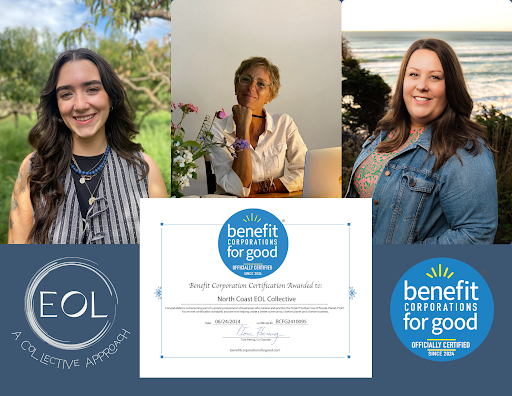
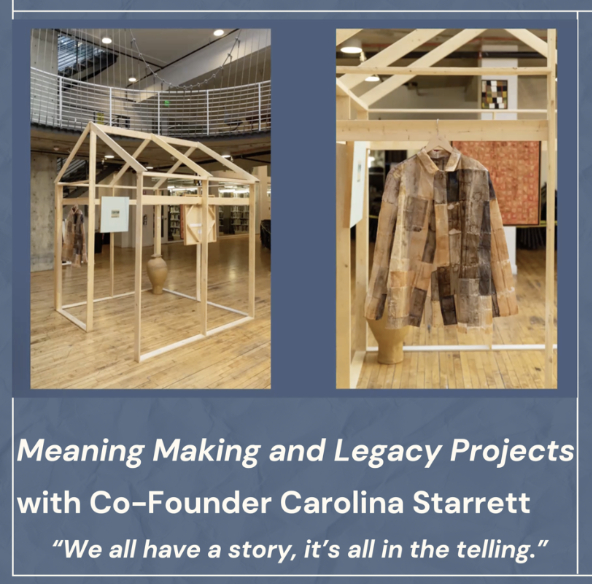
Margo, love having you share your insights with us. Before we ask you more questions, maybe you can take a moment to introduce yourself to our readers who might have missed our earlier conversations?
Manifesto:
We believe in COMMUNITY and A Collective Approach to Death and Dying.
We VALUE Acceptance, Belonging, Connection, and Legacy as essential to living and ending well.
We BELIEVE one person’s suffering is all our suffering and recognize this as essential to creating a compassionate community.
We are COMMITTED to creating a culture of openness and acceptance, challenging taboos and fears through conversation, education, questioning, and listening well.
We KNOW conversations, connection, and learning about death and dying can improve the quality of one’s life and create a sense of community around a profound experience we all share.
Our PRACTICE is based on the belief that the North Coast EOL Collective has a collective responsibility to the community by making visible what is too often invisible.
We BELIEVE the health and well-being of our community is a shared responsibility. In doing so, we promote sustainable practices that honor people and the planet.
As co-founders, we bring decades of professional practice, personal experiences, and an intergenerational approach (the ages of each co-founder are 20 years apart). We offer interdisciplinary perspectives as a textile artist with her MFA, a Licensed Clinical Social Worker in hospice and palliative care, and a nurse/community health leader.
Our hybrid business model disrupts the traditional binary of nonprofit versus for-profit structures. As the only certified Better Business for Good in our county—and the only one of its kind in Oregon—we’re asking people to rethink how they assign value to living well and, just as importantly, ending well. Too often, end-of-life care is expected to be charitable, despite the reality that dying has become a costly, privatized process managed by three dominant for-profit industries.
Our approach is rooted in community values, not corporate margins. We operate on a value-based model shaped by those we serve.
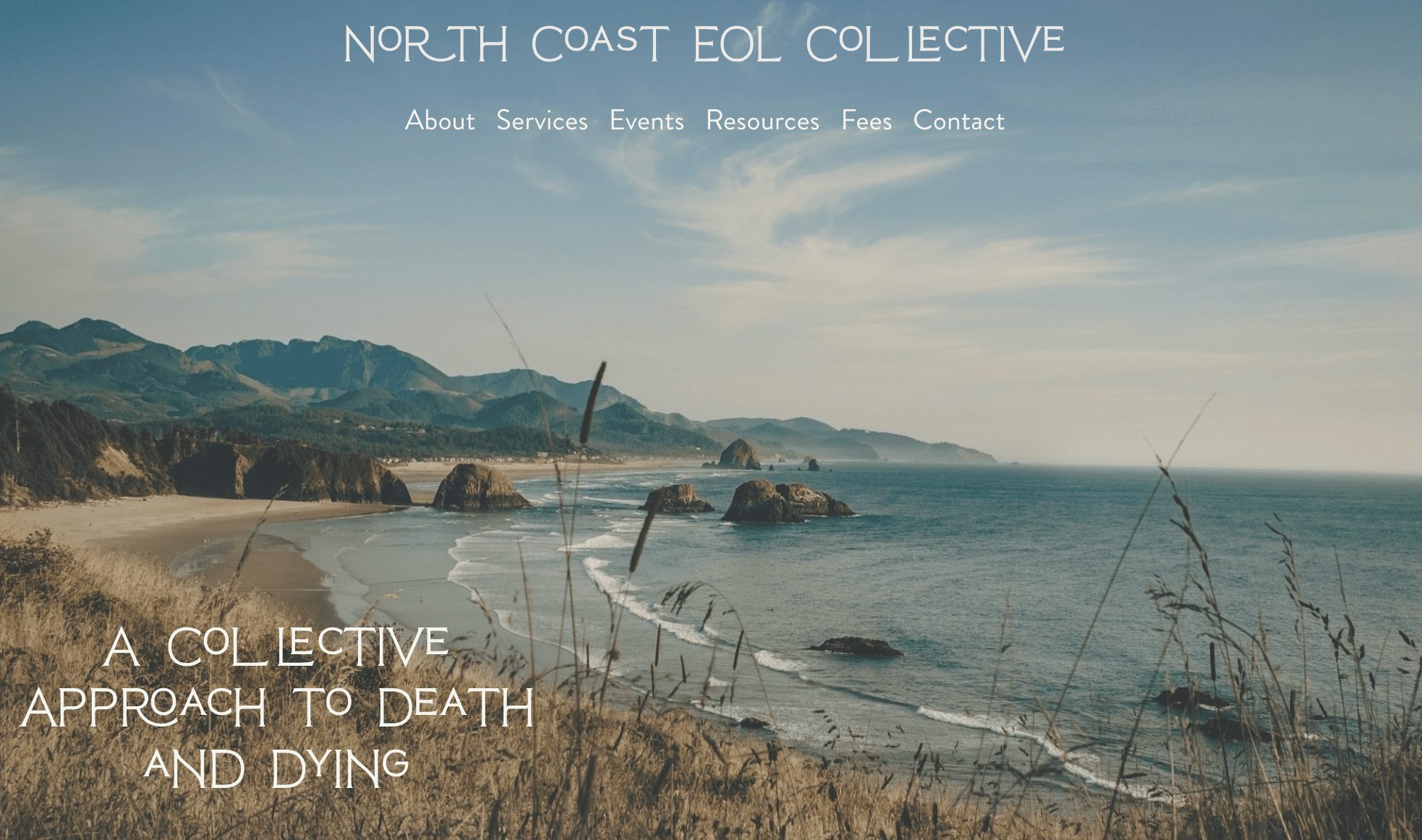
How about pivoting – can you share the story of a time you’ve had to pivot?
Margo Lalich’s career spans both private and public health sectors, including roles as an executive leader, nurse, consultant, and disaster response nurse—experiences that reflect her global and humanitarian perspective on health and education. She served on local, regional, and national boards, where she’s influenced and co-authored policy and legislation to increase funding and enhance school health services in Oregon and Hawaii. She holds undergraduate and graduate degrees from Oregon and Washington. A longtime resident of Clatsop County and twice its public health director, she co-founded the North Coast EOL Collective in 2023, grounded in the belief that the health and well-being of any community is a shared responsibility.
When Margo was asked to return to her former role as Public Health Director to lead the COVID-19 response, she applied her humanitarian experience and global health lens to what was a deeply conflicted and transformative global event. Under her leadership, the community’s pandemic response was an impactful collaboration based on a foundation of trust, kindness, and community, but what emerged even more clearly was how unprepared we are to navigate mortality as a society and as individuals.
Knowing her role would be interim, Margo stepped into the response with clarity: her time as an executive leader had run its course. What came next was a call to harness her entire career in service of a humanitarian crisis closer to home—the crisis of death illiteracy, particularly in rural communities. Death and dying had once been woven into community life. Now, they were outsourced, medicalized, and hidden.
While Margo’s personal and professional life had long included death—from the loss of a child and parents to her work on the frontlines—she never envisioned founding the North Coast EOL Collective. But after the pandemic, it had to come to life. She knew she was meant to lead the work, alongside her co-founders.
What they’ve created is something few imagined: a transformative, community-rooted model that is reshaping how people along the North Coast understand and approach death and dying. Through education and engagement, the Collective is helping communities reclaim what was lost, making visible what has too often been invisible.

How did you put together the initial capital you needed to start your business?
We self-funded the launch of the North Coast EOL Collective with intention and purpose. From the beginning, we chose not to become a nonprofit, nor did we want to compete with existing nonprofits for already limited resources. The prevailing belief is that an organization must be a nonprofit to do good or be impactful. We challenged that paradigm.
Death and dying are among life’s most significant—and often most feared—experiences. Why should innovative, community-based approaches to these profound events be offered only as charity? Few realize just how expensive it is to die in our current system. Most of the structures that support us at the end of life—from medical care to funeral arrangements—are run as for-profit businesses.
We created a social experiment. Instead of assigning fixed prices, we invited the community to determine the value of work that helps them face what they fear most. It’s an experiment in trust, transparency, and collective responsibility.
As a compromise between purpose and sustainability, we became a Certified Benefit for Good Corporation in Oregon, scoring high in our initial application. This structure allows us to honor our mission while modeling a new way forward that values impact without defaulting to the nonprofit mold.
Contact Info:
- Website: https://www.northcoasteolcollective.com/
- Instagram: @northcoasteolcollective
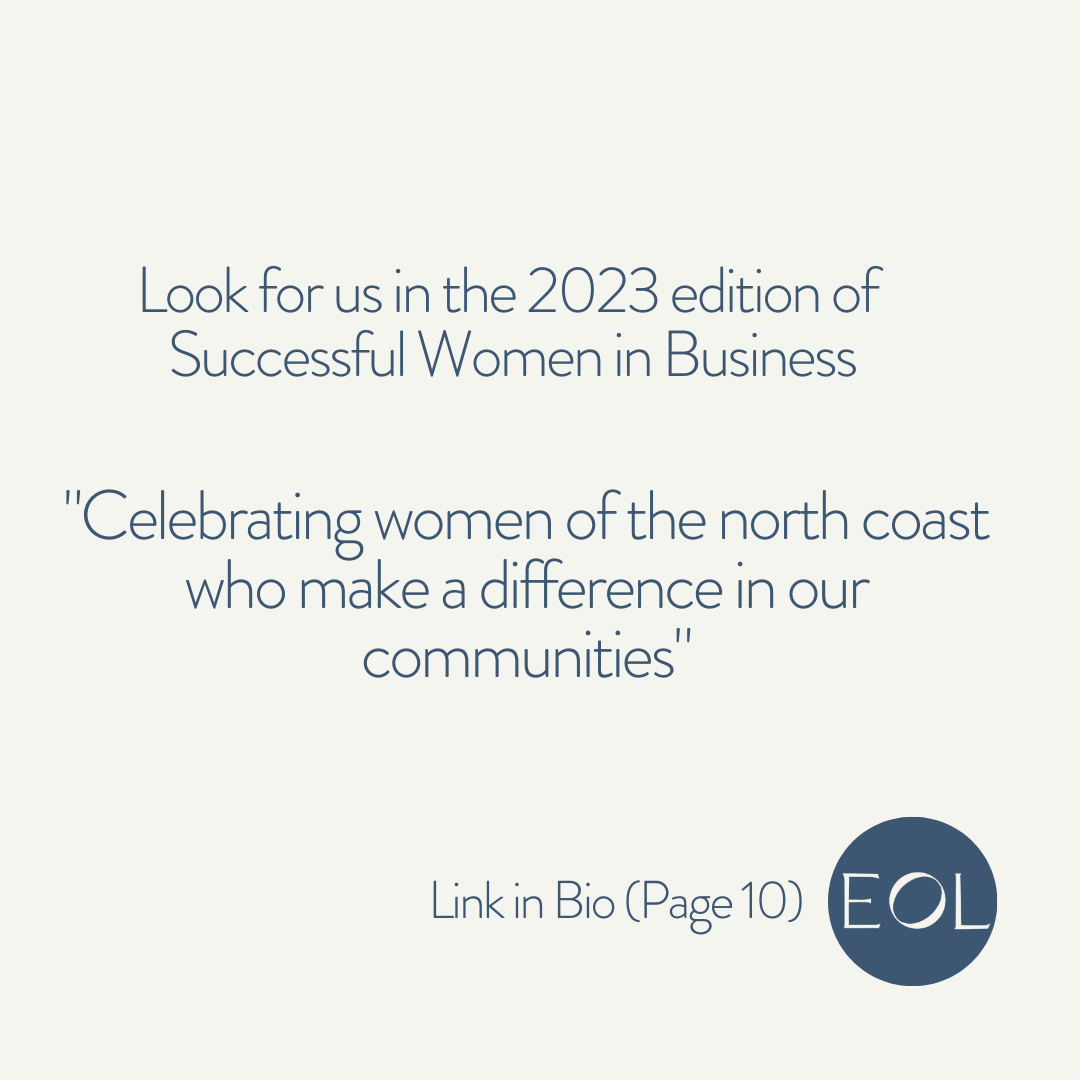

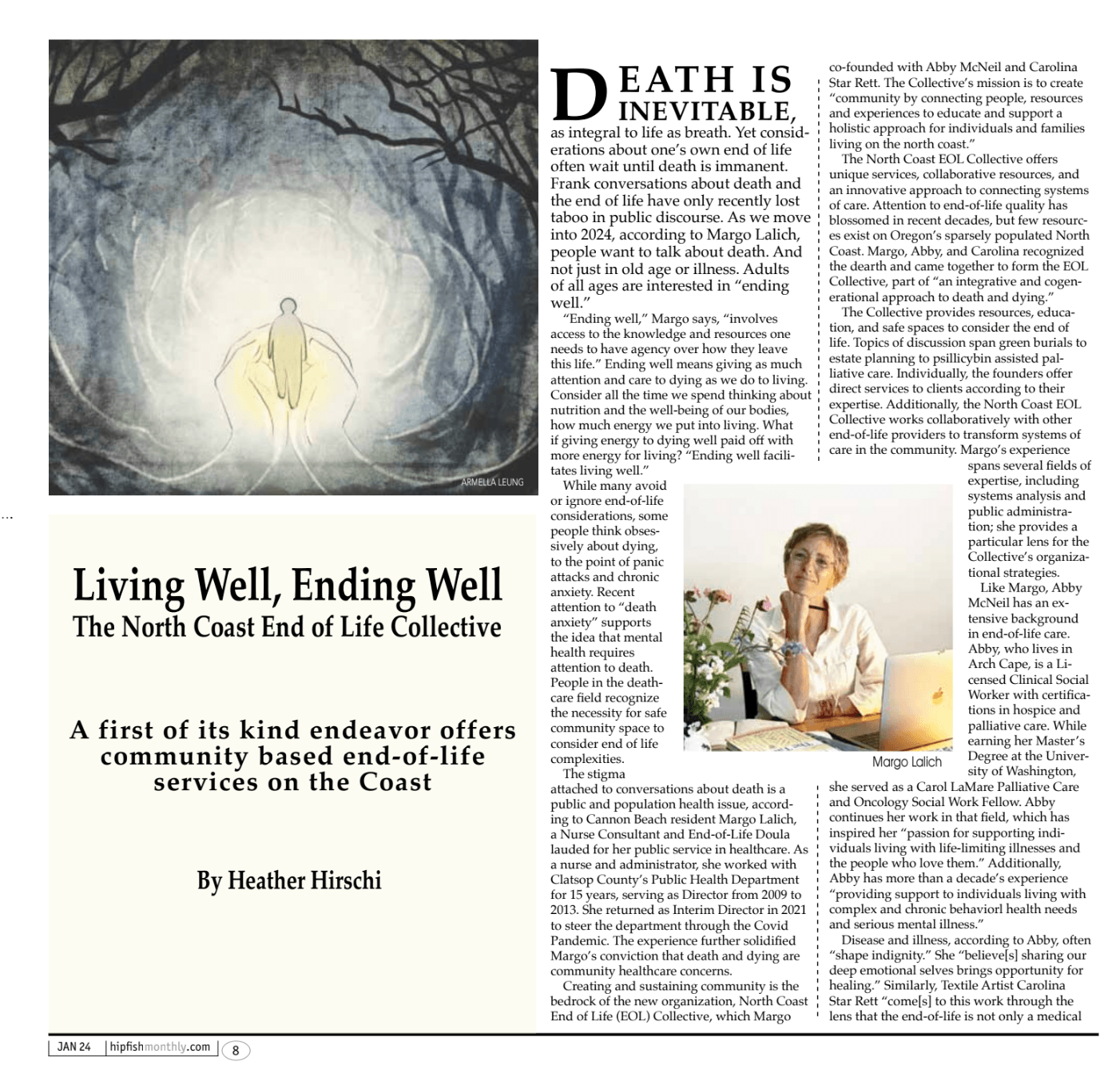
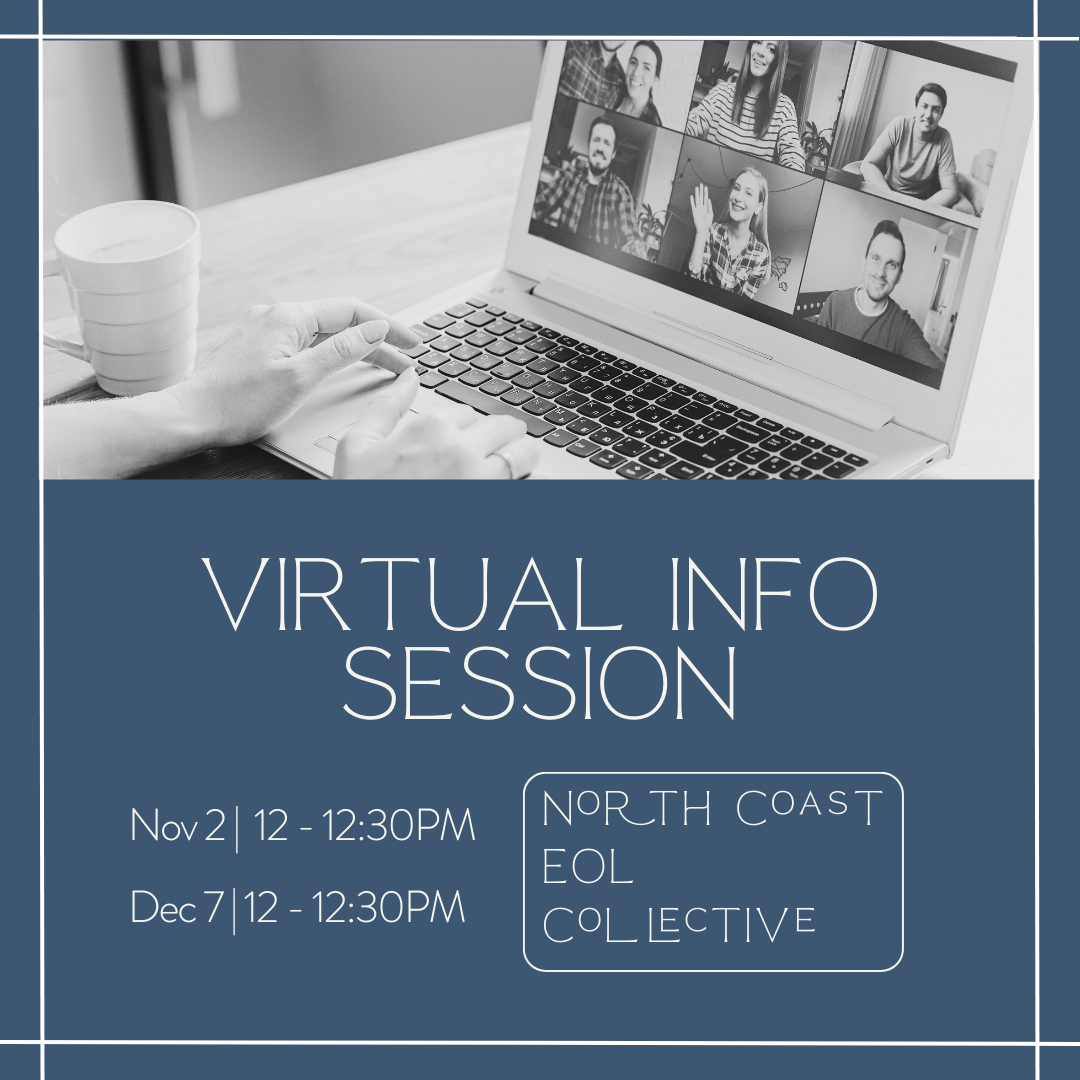
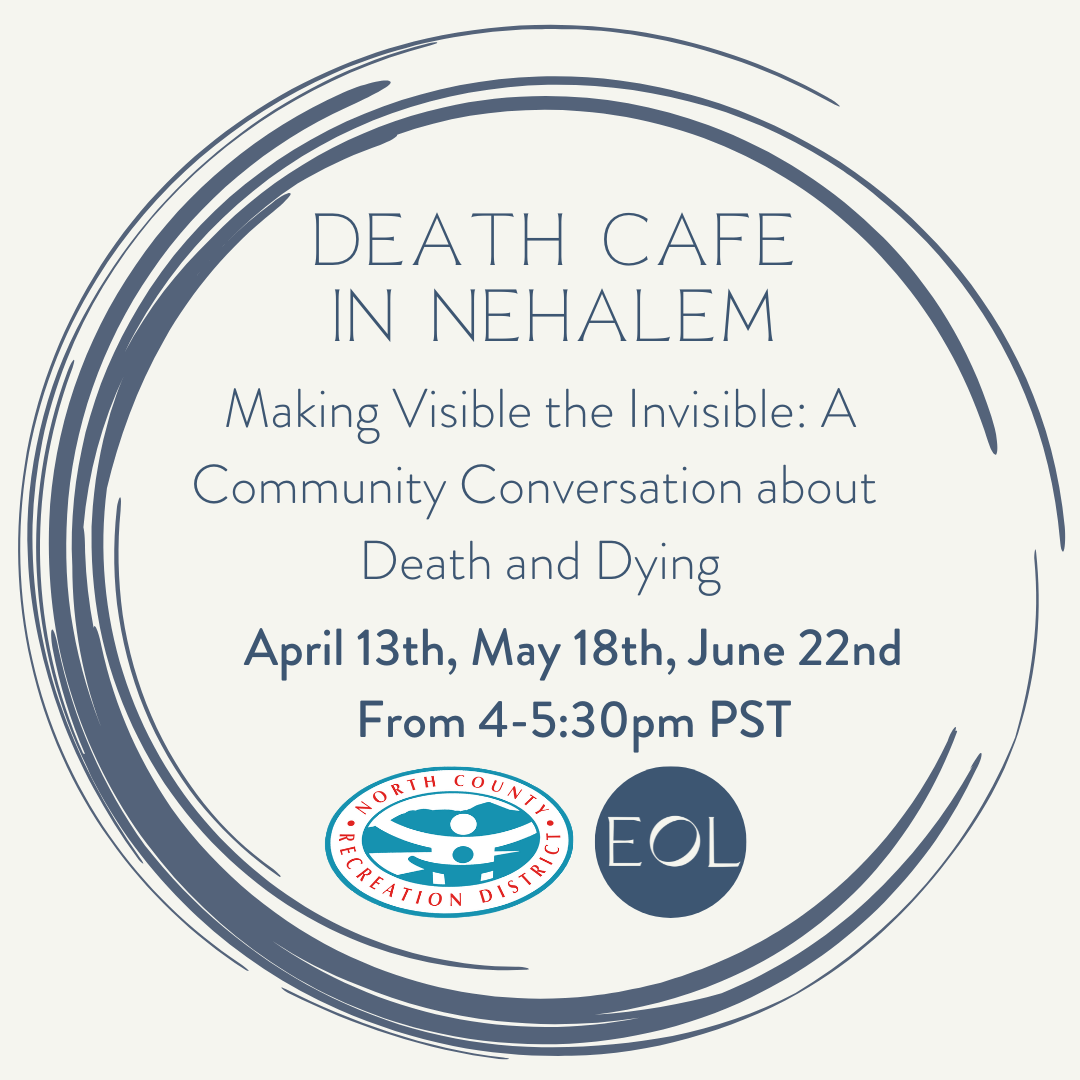
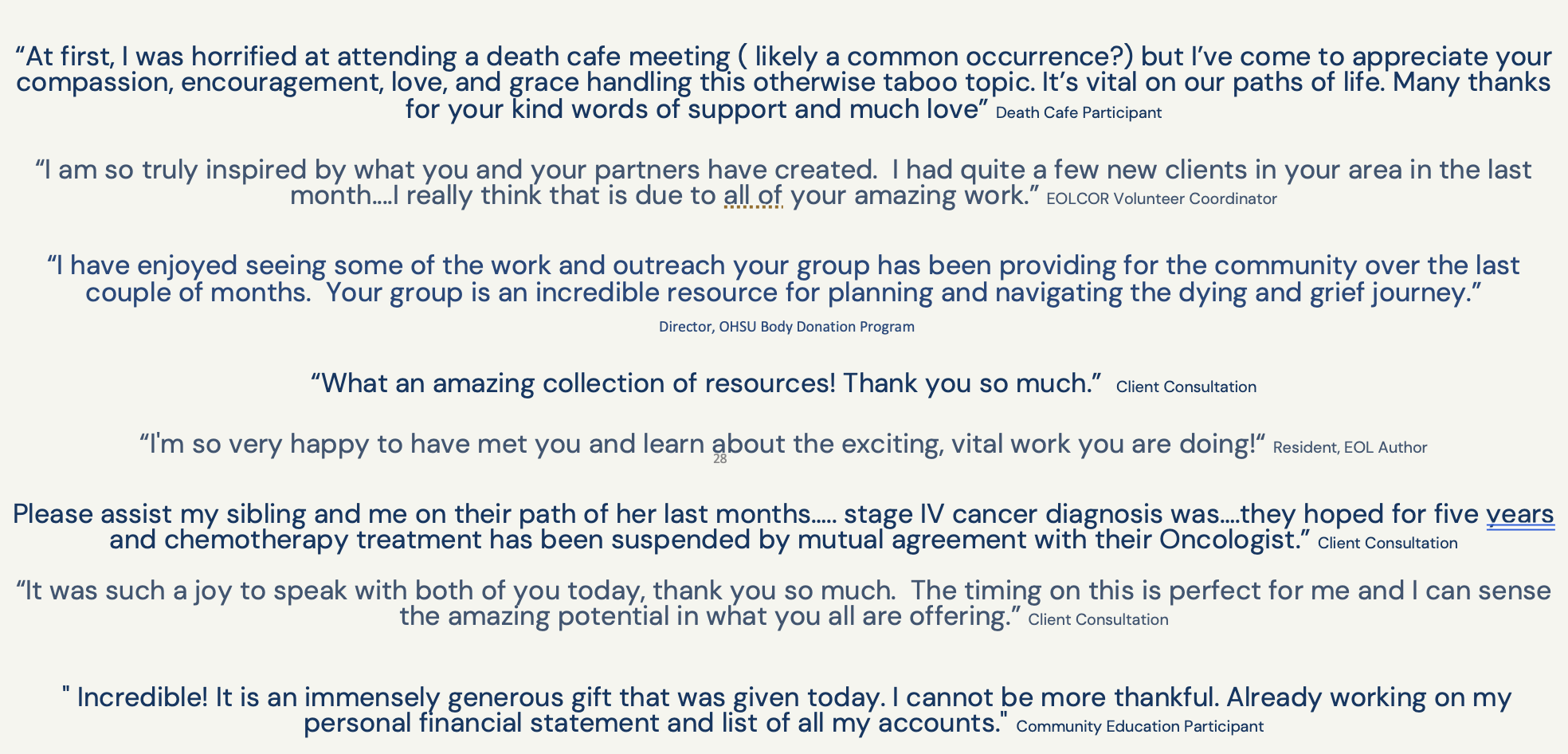
Image Credits
Images: North Coast EOL Collective, Carolina Starrett-Woodcock


